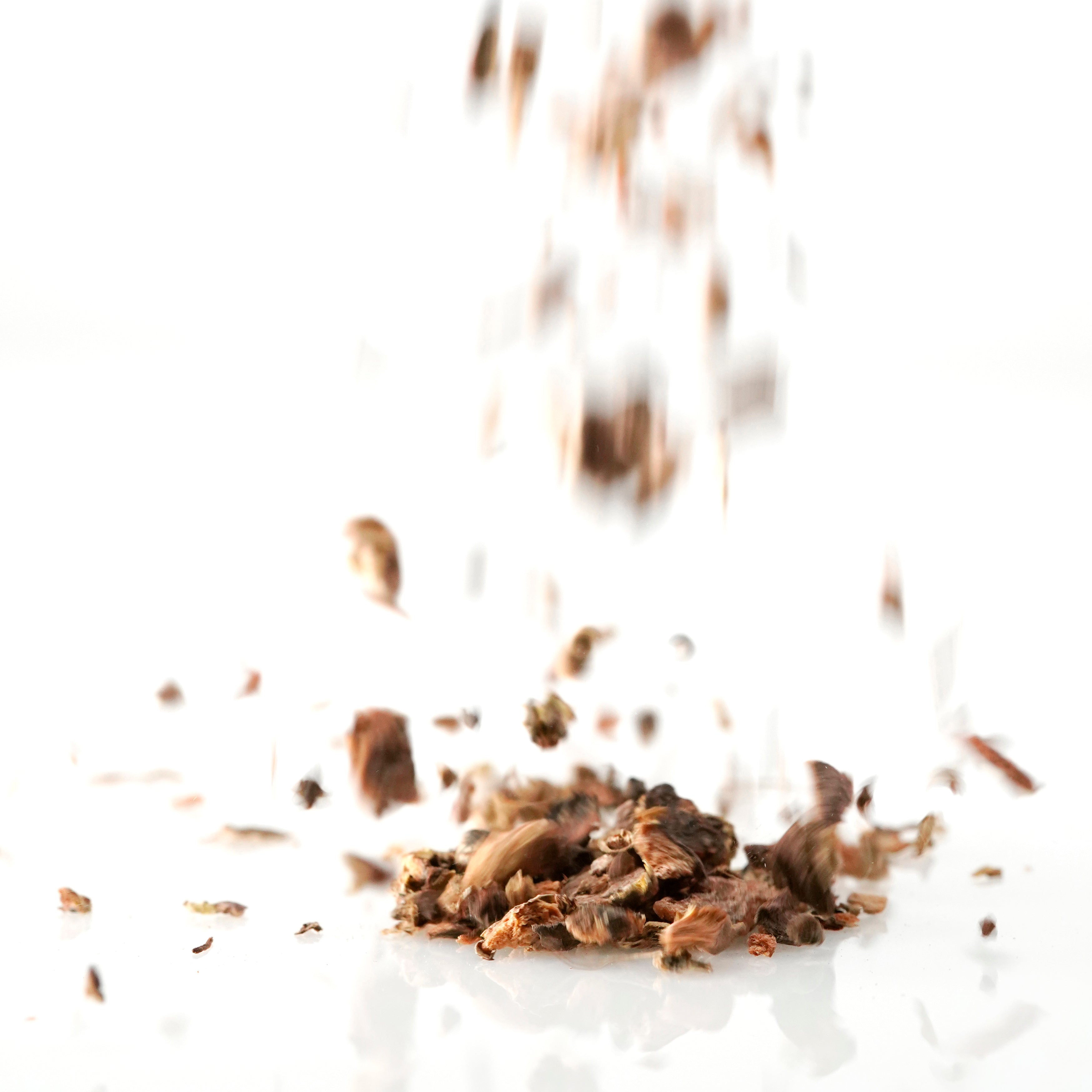
NOOTROPICS, THE SMART DRUGS
First and foremost, nootropics mobilize ATP, an enzyme that plays a central role in the metabolism of almost all organisms because it is needed as an energy transmitter. Their mode of action can be diverse and depends on the specific compounds in the plants. The effects of nootropics, also known as “cognitive enhancers,” can also vary from person to person. Here are some ways herbal nootropics can work:
Neurotransmitter regulation:
Some herbal nootropics can affect the concentration and activity of neurotransmitters such as acetylcholine, dopamine, serotonin and GABA in the brain. Neurotransmitters play a crucial role in communication between nerve cells and influence important cognitive functions such as attention, memory and mood regulation. By modulating neurotransmitter levels in the brain, nootropics can impact cognitive function.
Blood circulation and oxygen supply:
Some plant extracts, such as Ginkgo Biloba, which is also used in the pharmacological field, are associated with improved blood flow to the brain and increased oxygen supply to cells. Studies have shown that certain nootropic substances can improve both short-term and long-term memory. In addition, they are said to improve focus and concentration and increase the attention span.
Antioxidant effect:
Many herbal nootropics are rich in antioxidants, which can help neutralize harmful free radicals in the brain. The high concentration of flavonoids and terpenoids is primarily responsible for the strong antioxidant effect. This protects brain cells from oxidative stress and can promote cognitive health.
Anti-inflammatory:
Some nootropics have anti-inflammatory properties that may help reduce inflammation in the brain. Chronic inflammation is associated with neurodegenerative diseases, so this effect could play a protective role for the brain.
Synaptic plasticity:
There is evidence that certain herbal nootropics promote synaptic plasticity. Synaptic plasticity or “brain plasticity” refers to the ability of the nervous system to constantly adapt its structure and functions to new information and to learn.
Coping with stress:
The adaptogenic properties of, for example, Rhodiola Rosea or Ashwagandha can help to level the brain's stress response and increase stress resistance. A feeling of serenity and well-being arises,
Scientific research into herbal nootropics is in full swing; not all effects are yet fully understood or scientifically proven in detail. The effect can also vary from person to person. If you wish to use herbal nootropics to improve your cognitive function, you should do so in consultation with a qualified doctor or health professional to discuss potential risks and benefits.
Sources:
https://pubmed.ncbi.nlm.nih.gov/20590480/
https://pubmed.ncbi.nlm.nih.gov/34541370/
https://pubmed.ncbi.nlm.nih.gov/36987052/
https://pubmed.ncbi.nlm.nih.gov/31126578/
